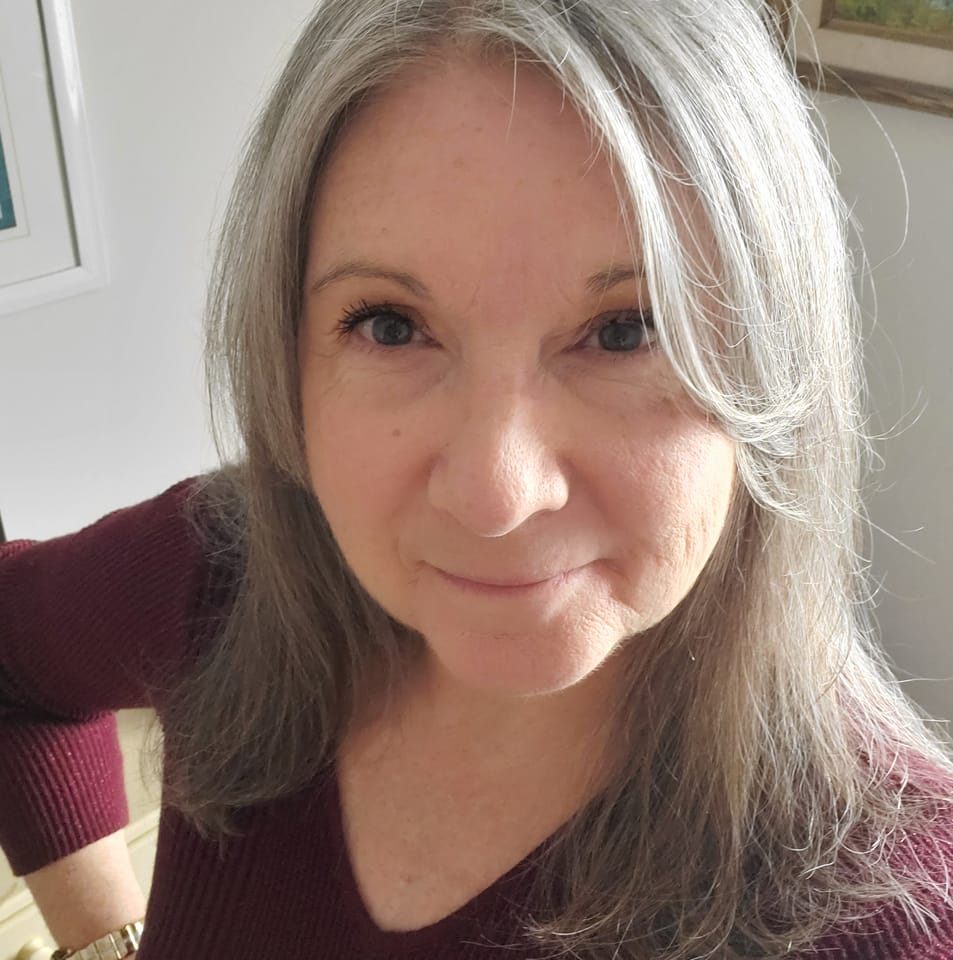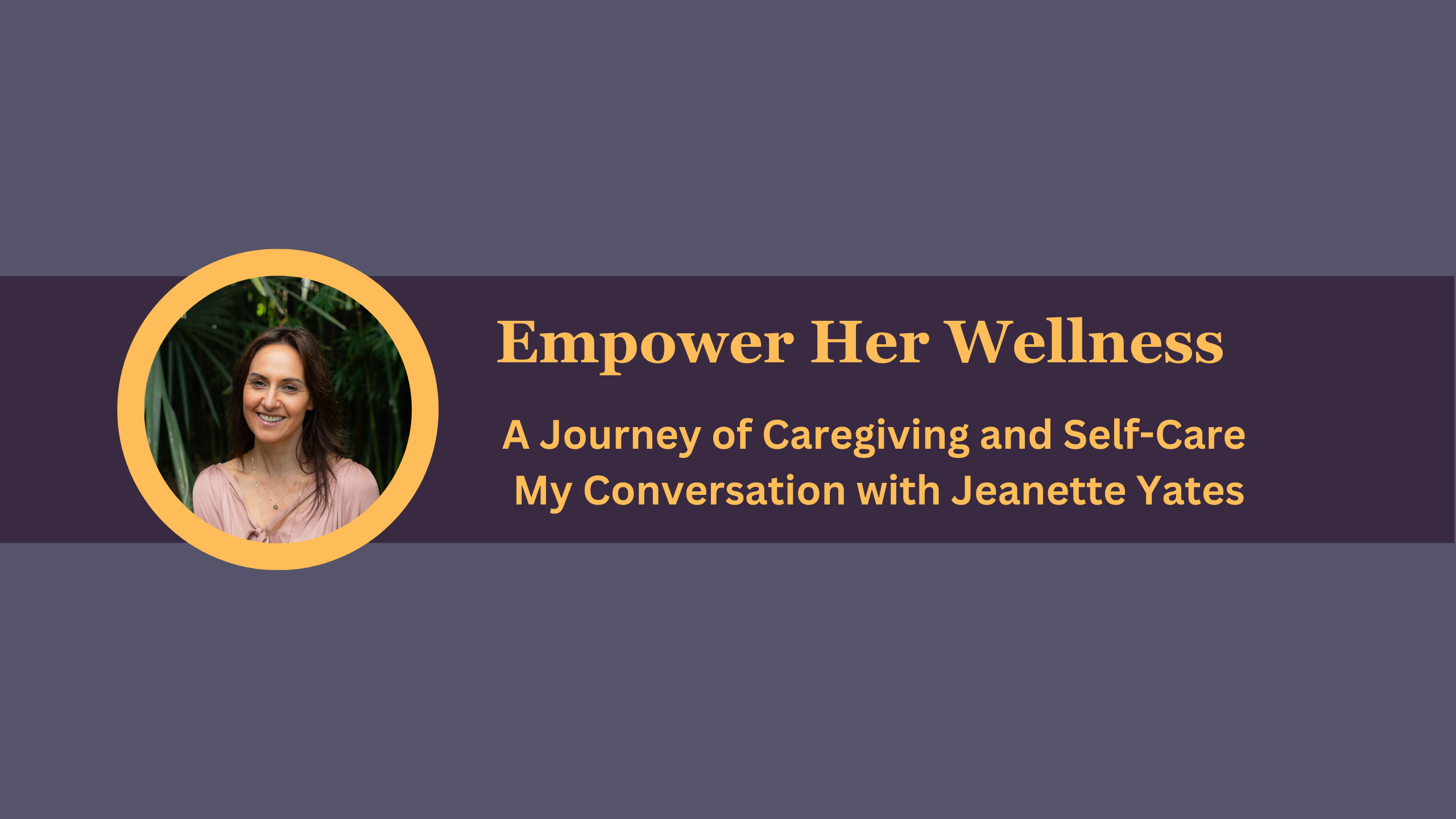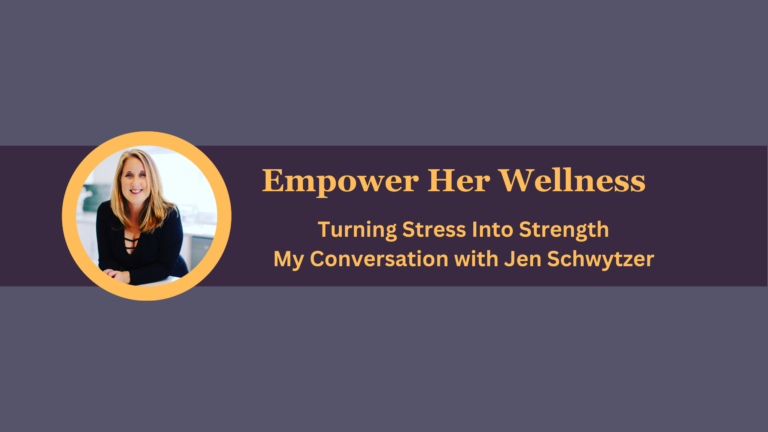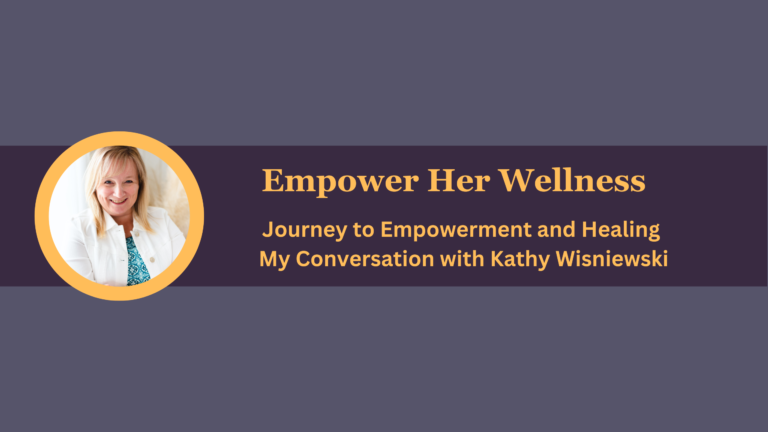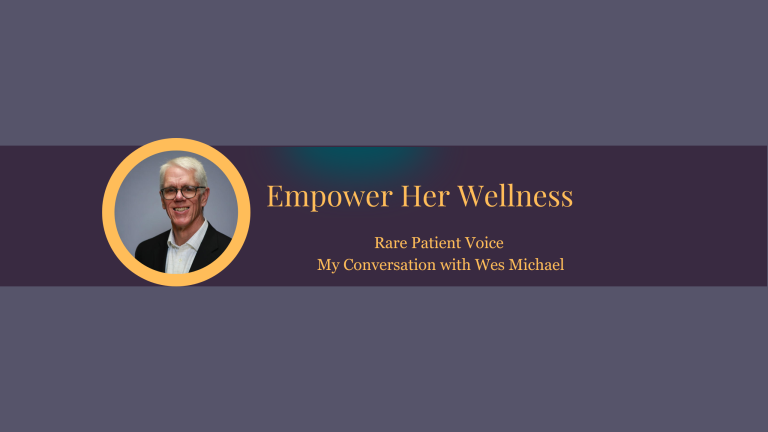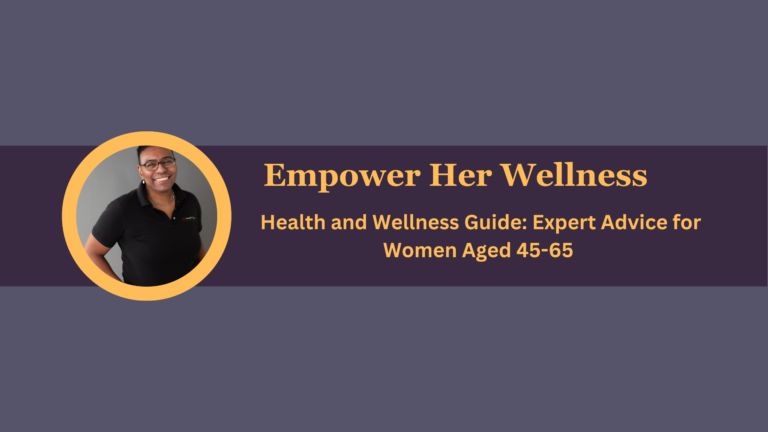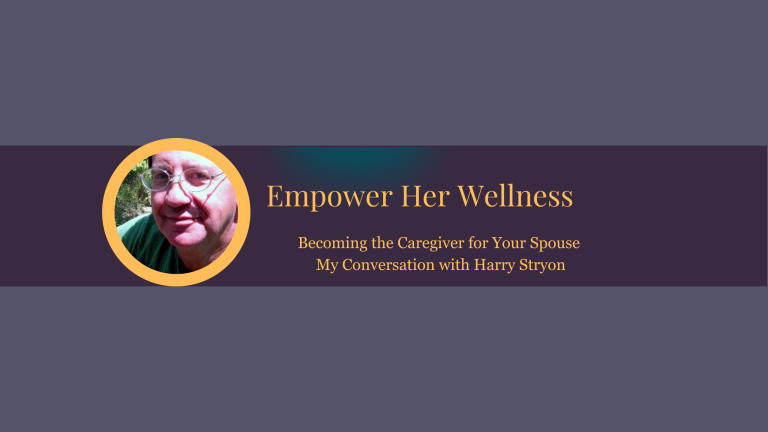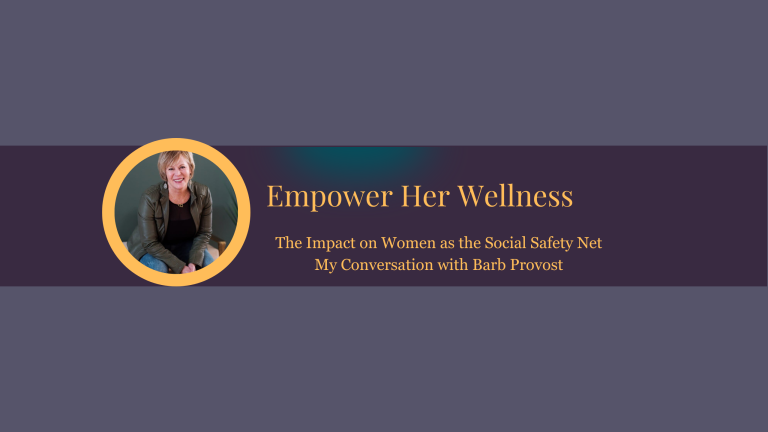Message Jeanette on her Instagram account and she will walk you through setting boundaries as a caregiver.
Listen to Empower Your Wellness
About Jeanette
For more information on the services Jeanette provides to caregivers visit her website.
Jeanette is a lifelong caregiver and knows what it’s like to have her needs put on the back burner because someone else always needs more. As a wife, mom, and primary caregiver forher mom, oh and with a job, she used to get through her days barely scraping by on energy, getting to the end of each day with so much left to do, so much left undone, and so much guilt about it all.
It took her years to figure out the balance between caring for herself, caring for others, and finally feeling connected to herself and the life she had been to busy to enjoy. This is what it means to be “self-caregiver”!
With the right tools, you can be a self-caregiver too!
Show Notes
Jeanette’s narrative reflects on her 40-year journey as a caregiver, starting at age eight when her mother fell ill. Her role evolved as her mother’s condition deteriorated, leading to a codependent relationship marked by guilt and trauma. Traditional self-care advice felt irrelevant until the COVID-19 pandemic prompted Jeanette to seek therapy, revealing her sense of unworthiness for self-care. This realization led her to develop personal strategies for managing her needs and recognizing her worth.
Jeanette focuses on recovering from burnout and codependency, noting that societal self-care norms don’t fit everyone. She crafted a personal toolkit involving therapy, habit-building, and prioritizing sleep as essential self-care. By setting boundaries and taking ownership of her life, Jeanette improved family connections and reduced caregiving fears. Now, while caring for her mother, she also helps other caregivers prioritize genuine self-care activities. Therapy illuminated how early caregiving shaped their obligations and people-pleasing tendencies.
There are many pressures faced by caregivers, including handling multiple health conditions and feeling responsible for crises. It emphasizes the importance of authentic self-care over superficial approaches, advocating for fundamental needs like sleep and belonging as foundational supports. Jeanette stresses boundary-setting, particularly the ability to say no, which many caregivers struggle with. Recognizing small acts of self-care and dedicating time mindfully can enhance enjoyment and motivation.
Highlighting the critical role of sleep in restoration, creativity, and decision-making, she addresses caregiver guilt around self-care. It identifies two types of guilt: feeling unproductive during rest and fearing missed opportunities. Personal boundaries can alleviate this guilt and manage caregiving effectively. Trauma responses in emergencies are acknowledged as unsustainable, emphasizing the need for boundaries to prevent burnout.
Reflecting on her caregiving experiences, Jeanette discusses setting realistic care goals focused on comfort and dignity, countering feelings of inadequacy with self-affirmation. She recounts health crises involving loved ones, managing expectations, and the importance of trusting medical professionals. Boundaries, likened to a fence with a gate, help prioritize personal time without guilt.
The conversation highlights the importance of communication and support among caregivers, offering assistance in boundary-setting and resources. Sharing personal challenges in a supportive community fosters healing and empowerment among caregivers.
Your Host – Shelly Drymon
My mission is to empower and inspire women to embrace their life transitions as opportunities for wellness, growth, and self-discovery and live their lives with clarity, purpose, and joy. Committed to honesty, integrity, and authenticity, I lead by example, showing that it’s never too late to live a life you love.
